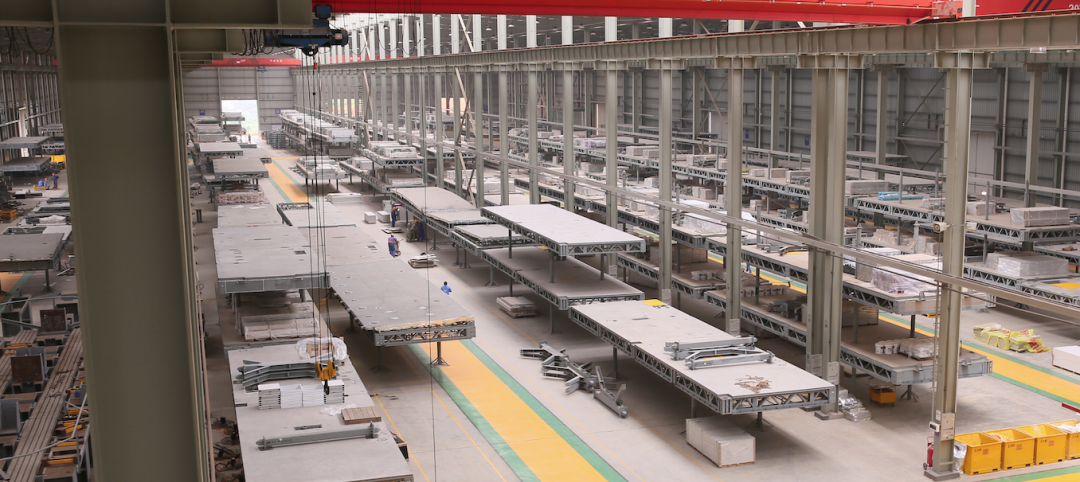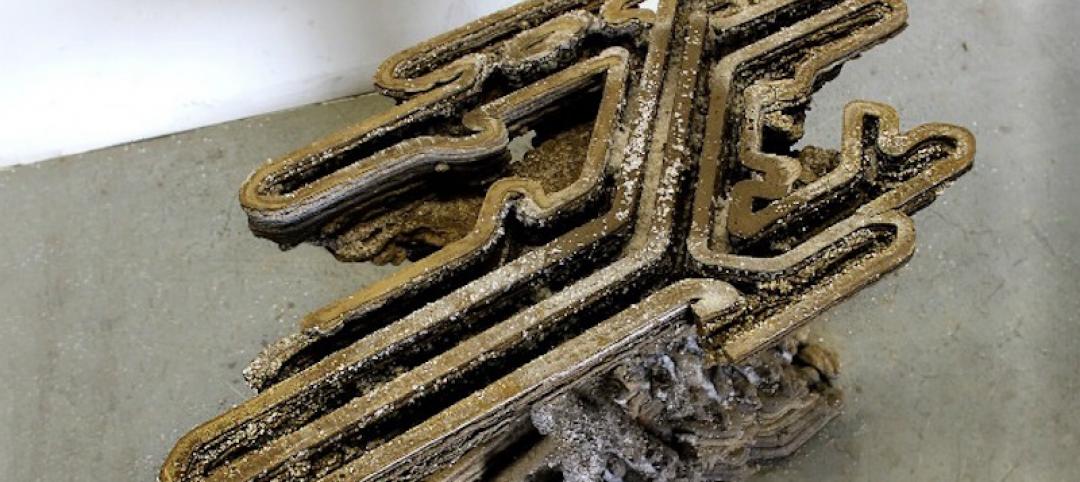Last week, vertical transportation giant thyssenkrupp debuted a novel technology that could transform its parts and materials supply chain in dense urban environments.
As part of a U.S. Senate Field Hearing on automotive innovation, January 24 at the Washington (D.C.) Auto Show 2018, thyssenkrupp showcased its newly developed self-driving delivery robot. Co-developed by software maker TeleRetail, the system is designed to transport spare parts and materials to field technicians working in busy, congested urban markets.
During elevator and escalator servicing sessions, spare parts are needed quickly, and a technician either has to drive back to base in his or her service vehicle or have it delivered by a colleague. With increased traffic clogging up city streets, the pressure on the supply chains is rapidly increasing, according to thyssenkrupp.
 Xenia Scholl of TeleRetail poses with the delivery robot at the Washington (D.C.) Auto Show 2018. Photo courtesy thyssenkrupp
Xenia Scholl of TeleRetail poses with the delivery robot at the Washington (D.C.) Auto Show 2018. Photo courtesy thyssenkrupp
“This is a major urbanization challenge that our service technicians are already experiencing today,” said Ivo Siebers, Senior Vice President of Global Logistics, thyssenkrupp Elevator. “With driverless delivery robots, we could fill a gap and get spare parts from our warehouses to the jobsite faster, more efficiently, and with less impact on the environment.”
Measuring 33 inches wide, the delivery robots can travel on sidewalks and can carry payloads weighing up to 77 lbs. An online logistics platform allows technicians and the operations center to track the progress of deliveries in real time.
“Fast-growing American metropolitan areas need intelligent solutions to cover the last mile in delivering spare parts to our technicians,” added Siebers. “In connection with TeleRetail, we are testing autonomous vehicles to solve this growing logistical problem.”
Related Stories
Game Changers | Feb 5, 2016
Asia’s modular miracle
A prefab construction company in China built a 57-story tower in 19 days. Here’s how they did it.
Game Changers | Feb 5, 2016
Tesla: Battery storage is not just about electric vehicles
With his $5 billion, 13.6 million-sf Gigafactory, Tesla’s Elon Musk seeks to change the economics of battery energy storage, forever.
BIM and Information Technology | Jan 27, 2016
Seeing double: Dassault Systèmes creating Virtual Singapore that mirrors the real world
The virtual city will be used to help predict the outcomes of and possible issues with various scenarios.
3D Printing | Jan 25, 2016
Architecture students create new method for 3D printing concrete
The team's Fossilized project allows for structures that are more varied and volumetric than other forms so far achieved.










